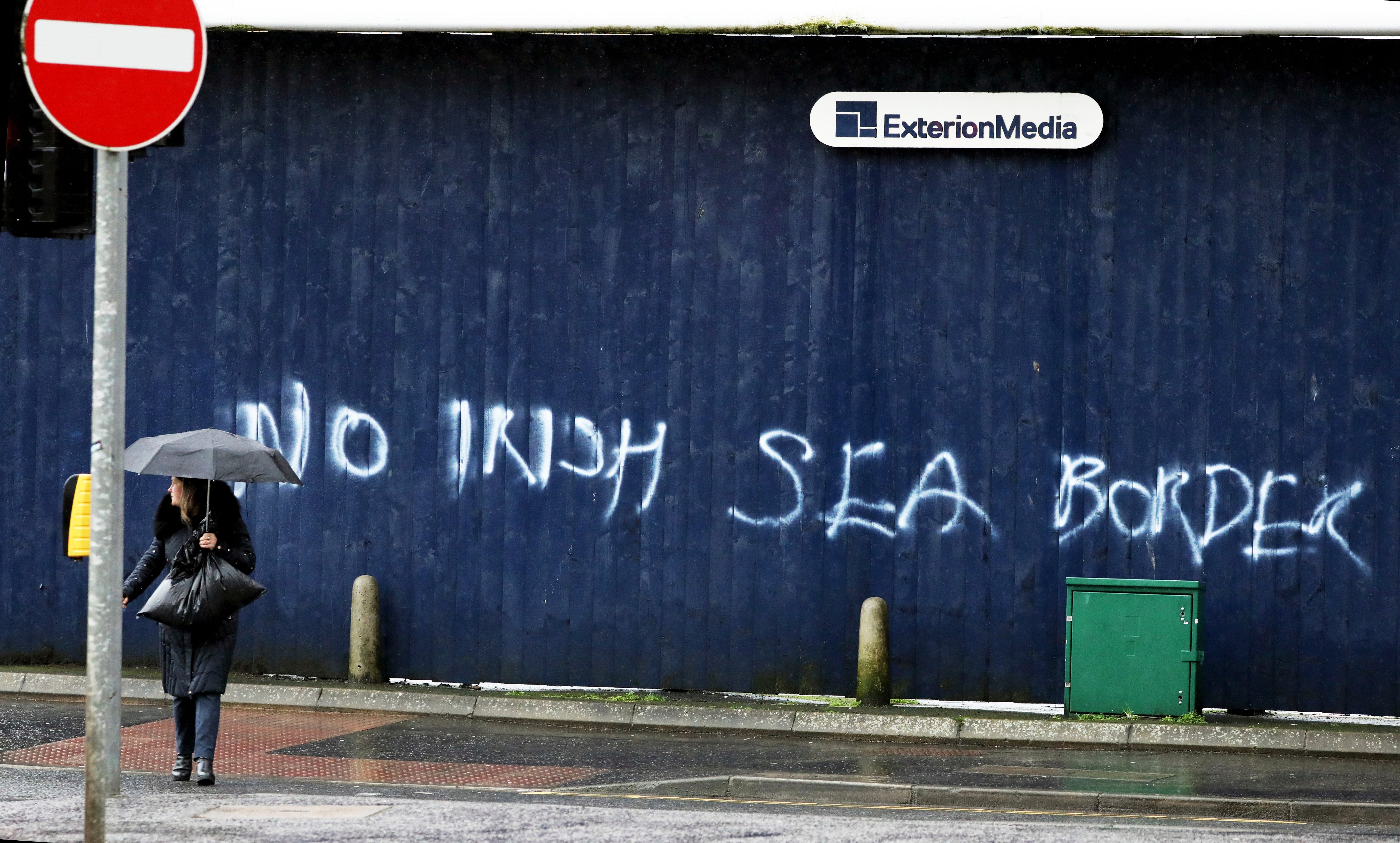UK says post-Brexit relations with EU bumpy amid border woes
Britain’s chief Brexit minister says U.K.-EU relations have been suffering from turbulence since their economic divorce six weeks ago

Your support helps us to tell the story
From reproductive rights to climate change to Big Tech, The Independent is on the ground when the story is developing. Whether it's investigating the financials of Elon Musk's pro-Trump PAC or producing our latest documentary, 'The A Word', which shines a light on the American women fighting for reproductive rights, we know how important it is to parse out the facts from the messaging.
At such a critical moment in US history, we need reporters on the ground. Your donation allows us to keep sending journalists to speak to both sides of the story.
The Independent is trusted by Americans across the entire political spectrum. And unlike many other quality news outlets, we choose not to lock Americans out of our reporting and analysis with paywalls. We believe quality journalism should be available to everyone, paid for by those who can afford it.
Your support makes all the difference.Britain’s chief Brexit minister said Tuesday that relations between the United Kingdom and the European Union have suffered from turbulence since their economic divorce six weeks ago, but he expressed confidence the bloc and its former member would soon enter smoother waters.
Cabinet Minister Michael Gove likened the relationship to a bumpy airplane takeoff that is followed by passengers settling down to enjoy their flight.
“We’re not at the gin and tonic and peanuts stage yet,” Gove told a House of Lords committee “But I’m sure that we will be.”
David Frost Britain’s chief Brexit negotiator, told the Lords EU committee that relations had been “more than bumpy.”
“I think it’s been problematic,” he said. “I hope we’ll get over this.”
Britain left the EU politically just over a year ago, and quit the bloc’s economic structures on Dec. 31.
Since then, customs and veterinary checks have been imposed on goods moving between Britain and EU member nations — and on some British goods going to Northern Ireland because it shares a border with EU nation Ireland.
The checks have unsettled the delicate political balance in Northern Ireland, which is part of the U.K. and where some people identify as British and some as Irish. The new measures are opposed by pro-British Unionists, who say they drive a wedge between Northern Ireland and the rest of the U.K.
Northern Ireland authorities halted veterinary checks and withdrew border staff from ports for several days this month after threatening graffiti appeared referring to port workers as targets.
The sensitivity of Northern Ireland’s status was underscored earlier this month when the EU briefly threatened to ban shipments of coronavirus vaccines to Northern Ireland as part of moves to shore up the bloc’s supply. That would have drawn a hard border between Northern Ireland and Ireland, a destabilizing scenario the Brexit trade deal was crafted to avoid.
Gove and European Commission Vice President Maros Sefcovic, who lead a U.K.-EU joint committee on Northern Ireland, are due to meet in London on Thursday in a bid to resolve the problems.
The U.K. government is urging the EU to take a more light-touch approach to border checks, which have already led to shortages and delays in getting some goods to Northern Ireland. Britain wants to see short-term grace periods that have delayed imposition of full red tape on supermarket supplies, parcels and medicines extended until at least 2023.
The EU says some economic friction is the inevitable outcome of Britain’s decision to leave the bloc’s single market and customs union.
U.K-EU trade relations are governed by an agreement struck between the two sides on Dec. 24, just a week before a Brexit transition period expired. Britain’s Parliament approved it in late December, and the EU planned to ratify it by the end of this month, with an extraordinary session of the European Parliament slated for Feb. 23.
Frost said the bloc was likely to ask for more time.
“We have heard informally from the European Commission today that we are likely to get a formal request to extend the two-month period that is in the treaty for ratification in the EU side,” he said.
___
Raf Casert in Brussels contributed to this story.
___
Follow all AP stories on Brexit issues at https://apnews.com/Brexit